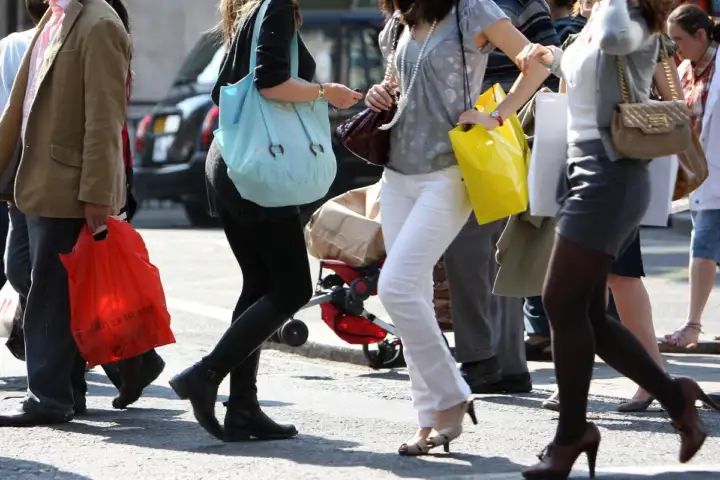UK inflation drops to 3.4 per cent as food pressures ease for cash-strapped households

The larger than forecast decline is a significant boon for Rishi Sunak who made reducing inflation one of his key economic pledges and it has also increased the chances that the Bank of England will look to cut interest rates in the summer.
The figures released by the Office for National Statistics (ONS) on Wednesday morning showed that inflation was 3.4 per cent in February, which is slightly lower than the 3.5 per per cent predicted by economists.
This is the lowest level inflation has been at since September 2021. Despite inflation falling it does not mean that prices are falling, only that they are rising less fast.
The latest figures are moving gradually closer to the Bank of England’s 2 per cent inflation target and comes ahead of the interest rate decision on Thursday.
Financial markets overwhemingly think that policymakers will keep interest rates on hold at 5.25 per cent, but the fall in inflation today increases the chances of them being cut in the summer.
Chancellor Jeremy Hunt did little to dismisss this idea when reacting to the latest figures and said it could pave the way for the BoE to cut interest rates.
He said: “Families today will heave a sigh of relief that we are firmly on track to bring inflation down to its target of 2%. This is the lowest headline rate for two-and-a-half years.
“But most encouragingly food inflation, which was nearly 20% a year ago, is now just 5%.
“And what this shows is that the plan to bring inflation down – it was over 11% when Rishi Sunak became Prime Minister, now just 3.4% – that plan is working but we do need to stick to it and see it right the way through.”
The ONS figures also showed that food price inflation fell back to 5 per cent in February, down from 7% the previous month. On a monthly basis, food inflation lifted by 0.2% – far lower than the steep rises seen a year earlier.
Prices in restaurants and cafes also eased back, with the annual rate of inflation falling to 6.7 per cent last month from 8.2 per cent in January.
Grant Fitzner, chief economist at the ONS, said: “Inflation eased in February to its lowest rate for nearly two-and-a-half years.
“Food prices were the main driver of the fall, with prices almost unchanged this year compared with a large rise last year, while restaurant and cafe price rises also slowed.
“These falls were only partially offset by price rises at the pump and a further increase in rental costs.”
The ONS added that it was not seeing any sign yet of an impact on consumer prices from the Red Sea disruption, following attacks from Houthi rebels on cargo ships going through the trade route in recent months.
Paula Bejarano Carbo, economist at the National Institute for Economic Research, said: “Annual CPI inflation was 3.4 per cent in February, falling from 4.0 per cent in January, driven by downward contributions from food and alcoholic beverages.
“This figure represents the lowest annual CPI inflation figure since September 2021 and possibly signals that the MPC can start to cut interest rates in the coming months – though we don’t expect any change at tomorrow’s meeting.”
Dr George Dibb, associate director for economic policy at IPPR, said: “Today’s news that inflation is falling is welcome, but it doesn’t mean prices are falling – just that they are rising less fast.
“The details of where prices are still rising the fastest also show we are entering a new phase of the inflationary period with food prices and restaurants making the largest downward contribution.
“The Bank of England’s high interest rates continue to cause pain in the economy. Indicators are heading in the right direction, with goods inflation, services inflation and ‘core’ inflation all falling this month, so we want to see interest rates come down.
“Alongside this, government must also make a shift away from the tax-cuts-at-all-costs strategy towards the much-needed prioritisation of investment into public services.”
Rishi Sunak will accept new £91,000 MP salary, No 10 indicates
MPs’ pay set to rise by 5.5% from April
Almost 20% of children have experienced online bullying, statistics show
Hospital staff ‘tried to access’ Kate’s records while she was a patient – live





